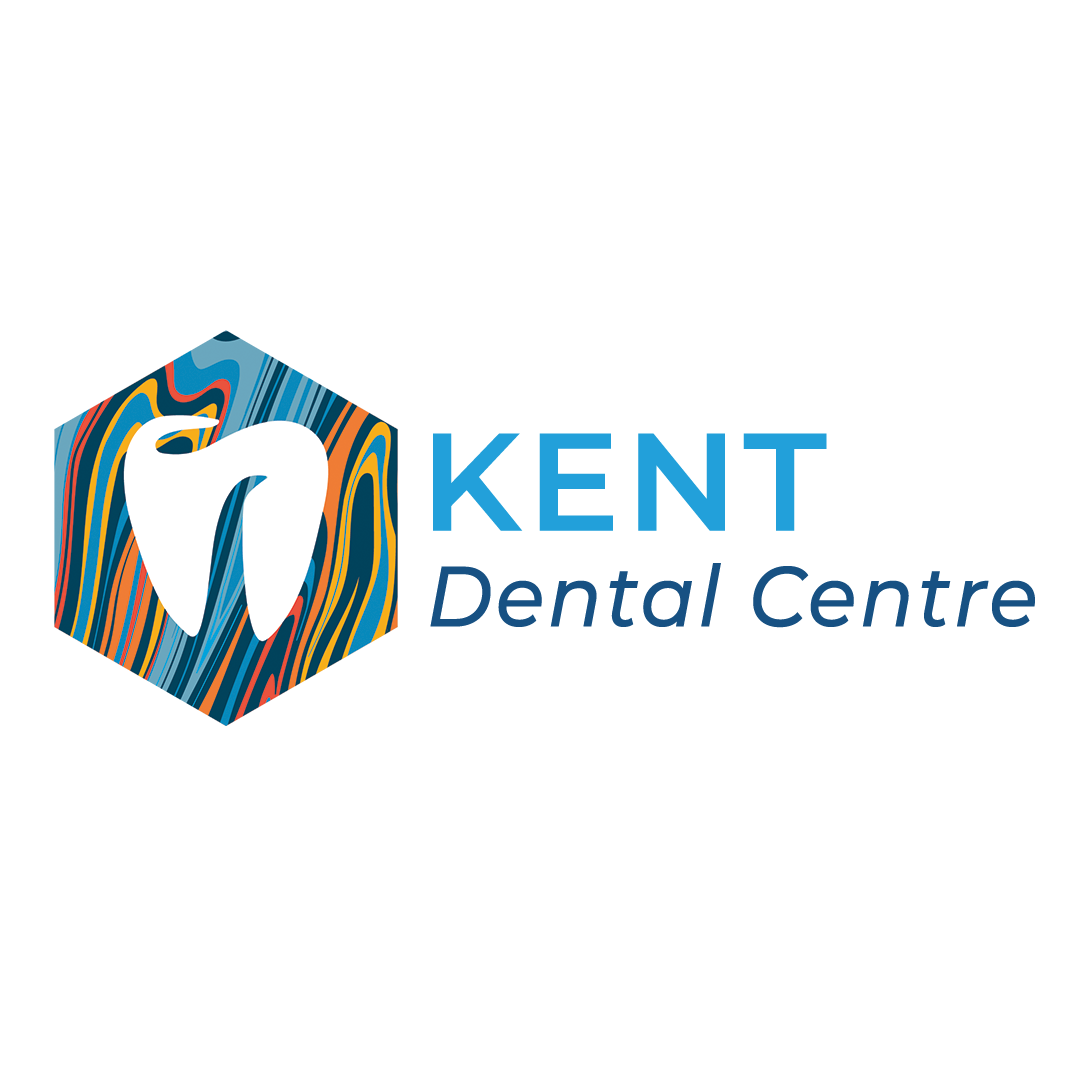Call Us - (+90) 850 305 3113
Pedodontics Pediatric Dentistry
What is Dentophobia?
Fear of the dentist is a common phobia that can be seen in individuals of all ages. These individuals have a general fear of sitting in the dental chair, dental examination and any of the procedures to be performed.
In order to prevent or prevent the fear of the dentist, which is more common especially in children, they should be introduced to a pedodontist – pediatric dentist from a young age, and they should be informed that this is a natural procedure and that people of all ages are examined. Dentophobia (fear of the dentist) will not occur in children who come to the regular pedodontist – pediatric dentist from the moment they are born.
When children come to our clinic, they realize how fun our pedodontics unit is and that there is nothing to be afraid of. Afterwards, all the tools they have seen are explained one by one, and their fingers and nails are filled with games. By giving nice gifts, they are ensured to leave our clinic happy. A sense of trust is formed between them and the pedodontist – pediatric dentists they meet in our clinic.
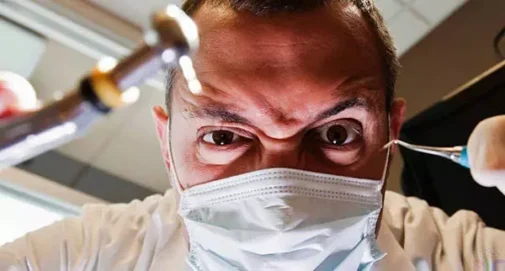
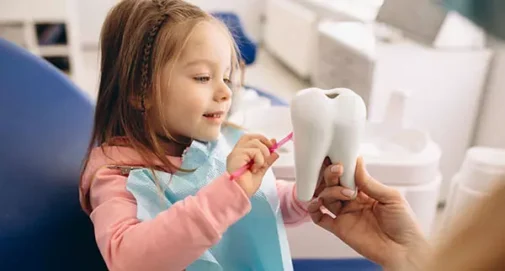
Pediatric Dentistry – What is Pedodontics?
Pedodontics – Pediatric Dentistry is the dental department that aims to ensure the healthy development of milk and permanent teeth of babies and children (0-13 age group) and to correct the effects of possible negative effects (caries, trauma, hereditary factors).
Children should visit the dentist once every 6 months.
How Should Babies’ Oral and Dental Health Care Be Done?
In babies, brushing should be started from the moment the teeth are first brushed. Tooth care of babies should be done using finger toothbrushes.
Fluoride toothpaste should be used in the size of a rice grain between 0-3 years of age, in the size of a pea between the ages of 3-6 years, and in a way that it covers 1/3 of the toothbrush after 6 years of age. After the 12th month, it is problematic for babies to suckle their mothers and can cause early childhood caries.
Babies need to visit a pedodontist – pediatric dentist from the moment their teeth are first erupted, and dental care and oral health should be checked with routine checks every 6 months.
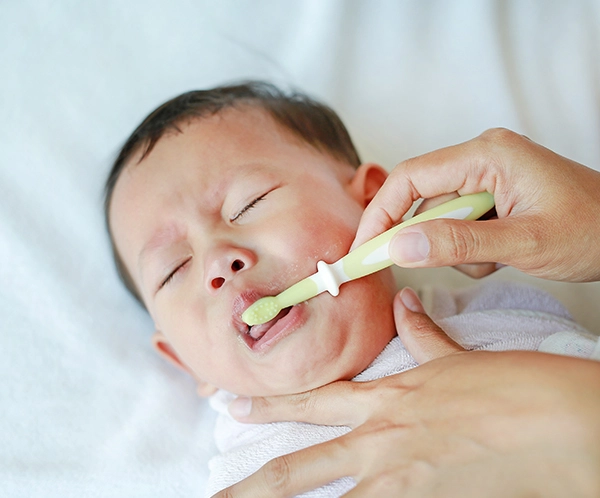
Why Are Milk Teeth Important?
In addition to purposes such as function, phonation and aesthetics of primary teeth, it also helps the permanent teeth to be aligned properly and the jaw development to be completed under optimal conditions by guiding the eruption of the permanent teeth from below. In children who lose their milk teeth early, the permanent teeth will start to turn and come out diagonally as they lose their eruption guidance. These can cause crowding problems in permanent teeth and even growth problems in the jaw. For this reason, it is very important that the milk teeth are present in the mouth until their physiological fall.
How can milk teeth be protected?
As in all branches of dentistry, the priority in pediatric dentistry is to ensure that oral and dental health never deteriorates, that is, protective measures. Our protective practices; is to support the mineralization of teeth by applying gel fluorine varnishes to primary and permanent teeth every 6 months, thus creating a barrier against acid attacks that cause caries.
Permanent teeth are very sensitive to caries when they first start to erupt. Two and a half to three years after the permanent teeth begin to erupt, they complete their mineralization. At this stage, it is very important that protective treatments are performed by pedodontists – pediatric dentists, as they are sensitive to acid attacks.
Do not forget to contact us for questions and concerns.
Our specialist pedodontist is at your service 6 days a week in our clinic.
As Ankara Çayyolu Dental Clinic, you can choose to have your child treated in a comfortable and healthy way by planning a pedodontist – sedation in pediatric dentistry – half-sleep treatment. For detailed information about sedation – half-asleep treatment, please click here.
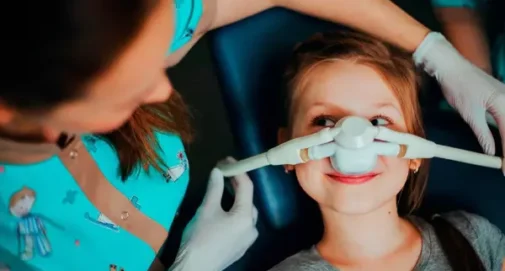
Long-term sucking of a finger or using a bottle can cause an anomaly called “Open Closure” in later ages. To prevent this, you can try a method to end this habit of your child by consulting your doctor. With regular dental examinations, you can ensure a healthy tooth structure.
Babies’ first dental examinations should usually be done between 6 months and 1 year old when their teeth start to come out. In order to create a healthy and controlled tooth structure, a check-up should be done every 6 months.
First of all, children should be taken to a dentist, even if they do not have a tooth problem. It is very important that only a small examination is made on the first day by introducing the clinical environment. Thus, when the procedure is performed, the child’s response to the treatment will be more positive.
The operations can be explained to children in a simpler way, by making some coding in a way they can understand. For example: instead of piercing – buzz, tickle the tooth; instead of a needle – it’s time for the tooth to sleep; instead of examination – let’s count the teeth, instead of pulling the tooth – let’s move it.
Since milk tooth decay progresses very quickly, they need to be checked regularly. In addition, the resistance of teeth against caries can be increased by applying fluoride to the teeth in a clinical environment without any caries.
